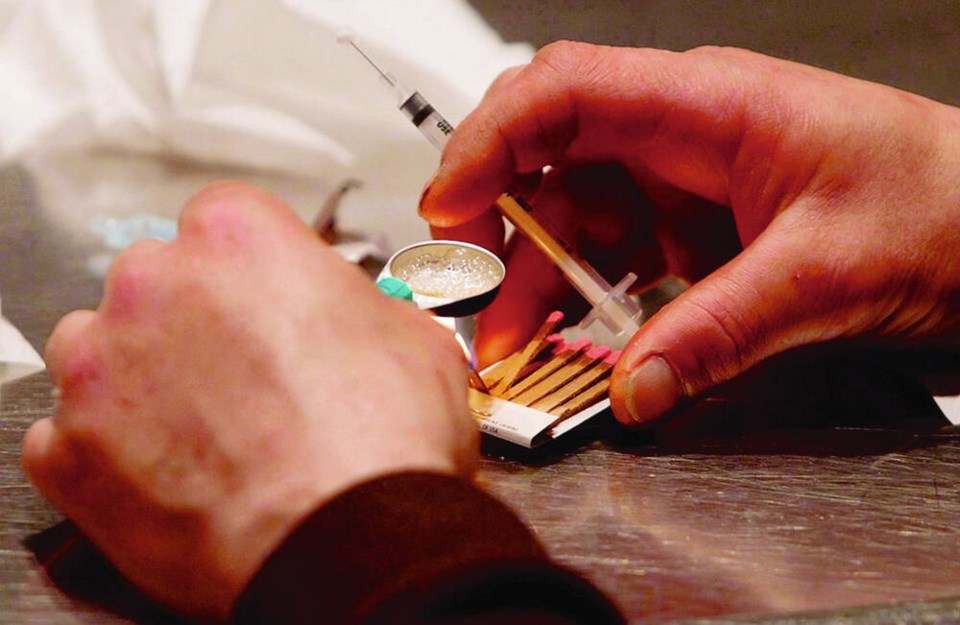Campbell River has adopted a new bylaw that prohibits drug consumption within 15 metres of public spaces where children and families gather.
The ban includes spaces such as playgrounds, sports fields, water parks, tennis courts, picnic shelters or bus shelters. If individuals attempt to use drugs in these areas, they will be directed by RCMP or bylaw officers to an overdose-prevention site at 1330 Dogwood St., the city says.
The bylaw also applies to public spaces around city facilities, including the community centre and library, Spirit Square, Centennial Building and Centennial Swimming Pool.
Mayor Kermit Dahl said the bylaw is intended to improve safety for people downtown, where there have been multiple stabbings. Earlier this month, a 21-year-old father was stabbed twice in the chest by someone next to an unconscious person when he went to assist after hearing cries for help.
Dahl said he hopes enforcement of the bylaw encourages people to congregate at the overdose-prevention site rather than in parks and other public places.
“If they’re using at a place that is set up to be used for doing all of these illicit drugs, rather than a place where young children are likely to be, I think that right there in itself explains how it affects safety,” he said.
Council began developing a bylaw governing public drug use early this year, after the province launched a three-year pilot project allowing people to carry up to 2.5 grams of drugs such as heroin, fentanyl, cocaine and methamphetamine for personal use. The goal of the pilot project was to reduce stigma that can prevent people from seeking help and stem the tide of deaths from illicit drugs.
Under the initial bylaw considered in February, anyone consuming drugs on Campbell River roads or in city facilities, parks and other public spaces could be fined $200.
The bylaw effort was paused, however, after a legal challenge by a Vancouver-based advocacy group and a warning from medical health officer Dr. Charmaine Enns that the ban would have “direct and deleterious public health impacts.”
Pivot Legal Society, a non-profit organization that works with legal issues surrounding poverty, drug policy and homelessness, sought an order quashing the initial bylaw and an interim injunction prohibiting the city from enforcing it.
Dahl said the city never intended to collect fines, but councillors believed they needed to include a fine amount in the bylaw.
The new bylaw narrows the prohibited areas to spaces where children and families spend time and focuses on redirecting people to use drugs at the downtown overdose-prevention site instead of issuing fines.
On its website, Pivot said after Campbell River rescinded the original bylaw, the legal group was continuing to monitor the situation. Pivot did not respond to an interview request.
The city did not initially consult with Island Health before bringing forward the bylaw early this year. Since then, council has been meeting with Enns and other health partners and non-profits to discuss public health and public safety.
Enns said she appreciates the city’s willingness to consult with her on amendments to the bylaw, but continues to believe the ban is not needed.
“I am still of the opinion that a bylaw specific to public consumption of controlled substances is not necessary and has the potential to do harm to people who are experiencing a chronic health condition,” she said. The toxic drug crisis continues to bring “an unacceptable level of harm and death,” she said.
>>> To comment on this article, write a letter to the editor: [email protected]



